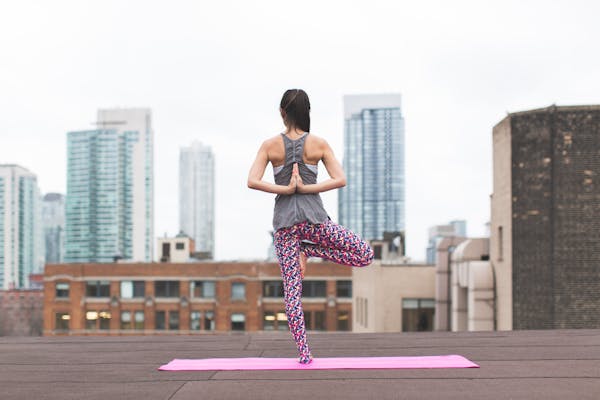“How to Create a Balanced Lifestyle for Optimal Well-Being”
In today's fast-paced world, finding balance can seem elusive. Juggling work, family, social commitments, and personal interests often leaves little room for self-care. However, creating a balanced lifestyle is crucial for achieving optimal well-being.

Here’s a guide to help you cultivate balance and enhance your overall quality of life.
1. Understand What Balance Means to You
Balance is a personal concept and varies from person to person. For some, it might mean a mix of work and leisure, while for others, it could involve integrating physical activity, relaxation, and social engagement. Reflect on your values and priorities to define what balance means for you.
2. Set Realistic Goals
Begin by setting achievable goals that align with your vision of balance. Break them down into manageable steps. For instance, if you want to incorporate more exercise into your routine, start with short, consistent workouts rather than overwhelming yourself with lengthy sessions.
3. Prioritize Self-Care
Self-care is a cornerstone of a balanced lifestyle. It’s not just about spa days and pampering, but also about meeting your physical, emotional, and mental needs. Incorporate practices like:
- Adequate Sleep: Aim for 7-9 hours of quality sleep each night.
- Healthy Nutrition: Eat a balanced diet rich in fruits, vegetables, whole grains, and lean proteins.
- Regular Exercise: Engage in activities you enjoy, whether it’s jogging, yoga, or dancing.
4. Create a Structured Routine
Having a daily routine can help manage time more effectively and reduce stress. Structure your day to include work, relaxation, and personal activities. Use tools like planners or digital calendars to stay organized and track your commitments.
5. Manage Stress Effectively
Stress management is vital for maintaining balance. Incorporate techniques such as:
- Mindfulness and Meditation: Practice mindfulness to stay present and reduce anxiety.
- Deep Breathing Exercises: Use deep breathing to calm your mind and body.
- Time for Hobbies: Engage in activities that bring you joy and relaxation.
6. Foster Healthy Relationships
Nurture relationships that support and uplift you. Surround yourself with positive people who contribute to your well-being. Make time for meaningful connections with family and friends, and communicate openly about your needs and boundaries.
7. Set Boundaries
Establishing boundaries helps maintain balance and prevents burnout. Learn to say no when necessary and protect your personal time. Communicate your limits clearly to others and honor your own needs.
8. Incorporate Flexibility
While routines are helpful, flexibility is equally important. Life is unpredictable, and being adaptable can prevent frustration and stress. Allow yourself to adjust plans and be open to changes without feeling overwhelmed.
9. Engage in Continuous Learning
Personal growth and learning can enhance your sense of balance. Explore new interests, take up new hobbies, or pursue educational opportunities. Growth contributes to a sense of fulfillment and can invigorate your daily routine.
10. Evaluate and Adjust Regularly
Regularly assess your lifestyle to ensure it aligns with your goals and needs. Periodically review your routines, goals, and overall well-being. Adjust as necessary to maintain or regain balance.
Conclusion
Creating a balanced lifestyle requires intention and effort, but the rewards are well worth it. By setting realistic goals, prioritizing self-care, managing stress, and fostering healthy relationships, you can enhance your overall well-being and lead a more fulfilling life. Remember, balance is a dynamic process, and it’s okay to make adjustments along the way.
What's Your Reaction?






















































































